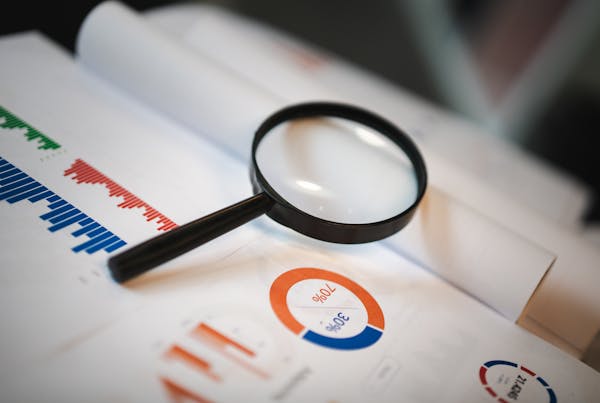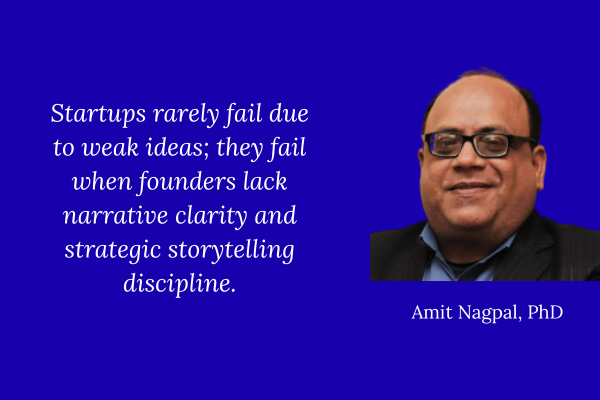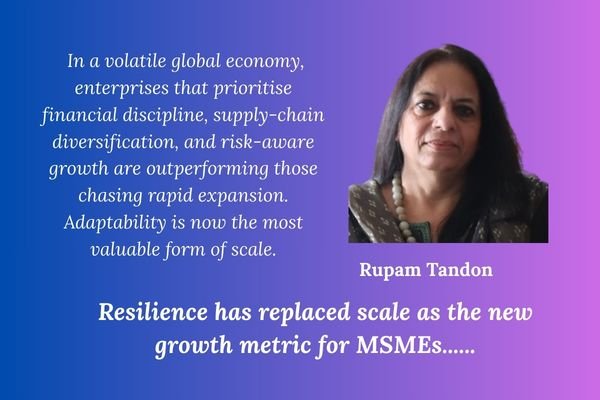As businesses across the globe are chanting ‘All hail Digital Transformation!’, the importance of harnessing the power of data cannot be overstated. Especially, for small and medium-sized enterprises (SMEs) and micro, small, and medium-sized enterprises (MSMEs), leveraging data analytics can be the key to unlocking unprecedented competitive advantages. Let’s see how.
MOD Pizza, a small artisan pizza chain, has just the story to tell. Five years ago, they turned to data analytics to delve deeper into customer preferences and optimize their supply chain. Not only did this streamline operations and reduce waste, but it also enhanced profitability. MOD’s digital ecosystem, bridging their websites and apps, epitomizes the transformative influence of data on even the smallest market players. Such success stories aren’t rarities.
“The internet says, on an average, 3.5 quintillion bytes of data is being generated daily so the urgency to harness this data is palpable.”
Small Business, Big Data: Why Analytics Matter?

In the vast landscape of the digital age, data is the compass guiding businesses to success. By harnessing data, businesses can:
Deep Customer Insights: By analyzing data from various sources, businesses can uncover the hidden preferences, behaviors, and needs of their customers. This enables them to create tailored products, services, and marketing campaigns, leading to increased customer loyalty and sales.
Optimized Operations: Through data analytics, inefficiencies within business operations can be identified and rectified. This streamlining leads to cost savings and improved productivity, allowing businesses to do more with less.
Predictive Power: Predictive analytics provides businesses with the ability to anticipate market trends, customer behaviors, and potential challenges. This foresight allows SMEs and MSMEs to adapt proactively, ensuring they remain one step ahead.
Strategies for Implementing Data Analytics in Small Businesses:
Historically, big corporations with vast resources had an upper hand in deploying sophisticated data analytics tools. However, the democratization of technology has brought powerful analytical tools within the reach of SMEs and MSMEs. Now every business can make data-driven decisions, offer products and services that resonate deeply with their target audience, while optimizing internal processes for efficiency.
But how? The journey begins with understanding the basics and taking baby steps.
Understand the Premise and Start Small: Begin by identifying one specific area of the business that would benefit from data insights. This could be understanding customer behavior, streamlining operations, or predicting sales. This approach not only helps you learn with each investment, but also aids risk mitigation and achieving quick wins.
Zomato is a splendid example of an SME that has leveraged data analytics to scale its business. An idea that started by observing customer preferences on their ordering app scaled to become a Data Analytics program. Recently launched Zomato Food Trends, a data analysis platform, is apparently custom-made for the restaurant industry. It is designed to provide access to Zomato’s supply-demand trends to their partners, giving a data-driven lens into customer preferences and behavior.
Level Your Playing Field: With access to data analytics, smaller businesses can now compete with larger players in the market. By being agile and quickly adapting to insights derived from data, SMEs and MSMEs can often outmaneuver bigger competitors, carving out their own niche in the market.

“In today’s business landscape, agility trumps size. With data analytics, small businesses can dance around larger competitors with precision and speed.”
Invest in Right Tools and Talent: To harness the full potential of data analytics, it’s crucial for SMEs and MSMEs to invest in the right tools and talent. There is a plethora of data analytics tools tailored for SMEs and MSMEs. It is crucial to select tools that align with the business’s specific needs and scale.
Nasty Gal’s story serves as a cautionary tale—over-reliance on data without the expertise to interpret it can spell disaster. From humble beginnings as an eBay store, Nasty Gal grew into a massive eCommerce player generating over $100 million in revenue in 2013. However, in 2015, the eCommerce firm filed for bankruptcy, and one of the reasons was its over-reliance on data analytics.
The company made a series of bad decisions from product development to marketing campaigns, such as overstocking on inventory and launching marketing campaigns that were not effective. After being acquired by Boohoo Nasty Gal was able to turn its business around.
Data is only as valuable as the insights derived from it. So, having a team or at least an individual with the expertise to interpret data can make all the difference.
Understand Your Customer: Data analytics is a treasure trove of customer insights. By analyzing purchase histories, website visits, and social media interactions, businesses can gain insights into what their customers truly want. This knowledge allows SMEs and MSMEs to tailor their offerings, creating personalized experiences that foster loyalty and drive sales.
Remember the expandable phone grips brand, Popsockets? Although it quickly became popular and hit $100 million revenue mark in 2016, the firm faced a quick decline the very next year.
CEO David Barnett quickly invested in gathering customer preferences, sales trends, and social media engagement. He then used this data to identify new product opportunities and develop targeted marketing campaigns. In 2018, the company launched a new line that included PopGrips for tablets and laptops. The company also launched innovative marketing campaigns targeting specific customer segments, such as parents and millennials. In 2019, PopSockets generated over $200 million, doubling their revenue from 2017.
Streamline Your Operations: Beyond understanding the market, data analytics provides a mirror to introspect business operations. Operational data can help us identify the bottlenecks, inefficiencies, and areas ripe for automation. This leads to cost savings, improved productivity, and the ability to scale operations without proportionally increasing overheads.
Stitch Fix is an American online personal styling service that quickly grew faced multiple challenges. The business realized that their operational challenges were causing high customer acquisition costs and low customer retention rates. Customer data collection, including information on their demographics, preferences, and purchase history started.
The collected Data was then analysed to identify the factors and started making changes to its business model. These changes included targeting the right customers, improving the styling process, focusing on customer experience, and reducing costs.
As a result, Stitch Fix soon started seeing reduction in customer acquisition costs and increasing its customer retention rates. The company was also able to improve the efficiency of its operations and increase profitability.

A Glimpse into the Future Through Predictive Analytics: Advanced data analytics tools offer predictive capabilities, allowing businesses to forecast trends, sales, and even potential challenges. For SMEs and MSMEs, this means the ability to be proactive rather than reactive.
Warby Parker, an American online eyewear retailer, uses data analytics to personalize their marketing campaigns and product offerings. Their blue light blocking glasses and the Home try-on program are results of their demand forecast efforts. Warby Parker managed to disrupt the monopolistic eyewear industry, and they are still bringing in new strategies based on their forecasting results.
Conclusion
In the dynamic world of business, data analytics is the lighthouse guiding SMEs and MSMEs through murky waters. It is not just about numbers and graphs; it is about transforming these figures into actionable insights, driving growth, innovation, and a competitive edge. However, as with all powerful tools, it is essential to wield data analytics with precision. This underscores the need for technical consultation, ensuring that while businesses soar to new heights, they remain grounded in robust strategies, minimizing risks and maximizing rewards. The future is data-driven; are you ready to embrace it?
About the author:
RAJSHEKHAR GUMMADAPU
Raj Gummadapu is the Founder and CEO of Techwave. He has over 20 years of global experience across multiple countries and has been instrumental in Techwave’s rapid growth.

Raj Gummadapu is the Co-Founder and CEO of Techwave, a global IT and engineering solutions company. With over 20 years of experience in the industry, he’s a visionary leader dedicated to enterprise transformation. Raj’s deep client focus and commitment to a data-driven, digital future have been pivotal in Techwave’s growth and diversification. He aims to make digitalization accessible to enterprises worldwide, providing powerful and affordable tech solutions.
In his role as CEO, Raj has expanded Techwave’s service offerings and customer-focused innovation, positioning it as a global digital transformation leader. He has a history of leadership in companies like Sysco and Deloitte, particularly in Business Intelligence and Performance Management Practices. Raj’s educational background includes a Bachelor of Commerce from Osmania University, and he’s a Chartered Accountant and Certified Public Accountant, infusing his financial expertise into holistic solutions for customers and partners.
About Techwave:
Techwave is a prominent international provider of engineering and IT services and solutions, spearheading the digital transformation revolution. They assist clients in unlocking and optimizing their potential, expanding their market presence through a comprehensive range of technology services. Techwave’s diverse offerings encompass digital solutions, analytics, enterprise resource planning (ERP), application development, and the Internet of Things (IoT). With their headquarters situated in Houston, Texas, USA, and a global presence spanning 11 countries across North America, the Middle East, Asia, and other regions, Techwave is at the forefront of driving technological innovation and transformation.
Author Profile

- Raj Gummadapu is the Co-Founder and CEO of Techwave













